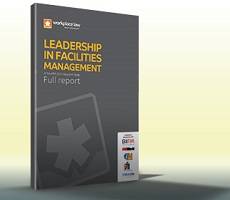August 16, 2013
The latest issue of the Insight newsletter is now available to view online
The latest issue of our weekly newsletter, Insight, is now available to view online here. This week: a report from Corenet claims that global (meaning – American) space standards are moving closer to the UK norm; an update on the proposed merger between the UK’s largest facilities management trade associations; Simon Heath argues that when it comes to providing great service in FM it’s better to be exceptional at a few a things than mediocre at lots; the pitfalls of using social media as a recruitment tool; and why we need to come up with something better than the current approach to ergonomics which remains rooted in 20th Century thinking and legislation.






















August 15, 2013
Progress made on proposed FM bodies’ merger but membership consultation to wait
by Sara Bean • Comment, Facilities management, News
The British Institute of Facilities Management (BIFM) reports that merger talks with fellow FM and services related bodies, Asset Skills, the Facilities Management Association and the Cleaning and Support Services Association are progressing, but says a membership consultation must wait for the findings of the steering and working groups. As Simon Heath pointed out in his comment on the merger in May there is a sense of “crushing inevitability” that the first step in the process has been to form a steering group rather than letting members have some say in the early discussions.
(more…)